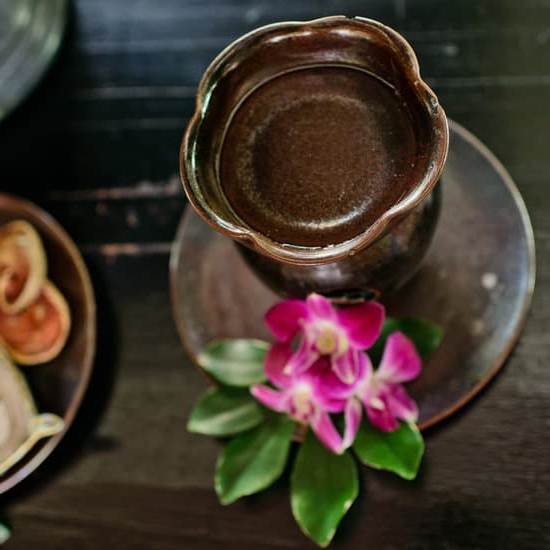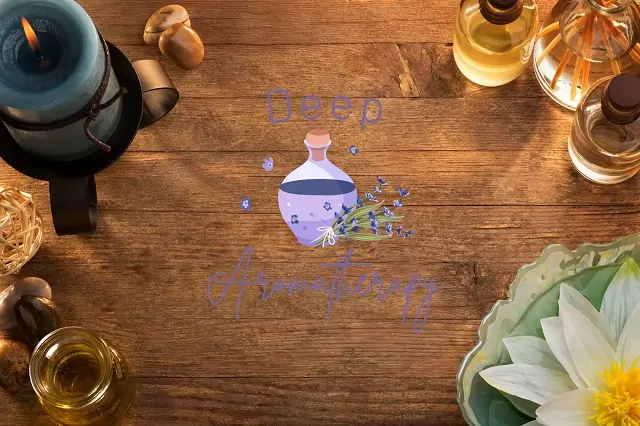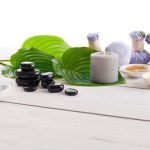Aromatherapy, the therapeutic use of essential oils derived from plants, has been gaining popularity as a natural remedy for various health conditions. The practice involves inhaling or applying these aromatic oils to improve physical and mental well-being. In this article, we explore the range of conditions that aromatherapy is used for and its potential benefits.
Aromatherapy utilizes the powerful scents of essential oils to promote relaxation, reduce stress, alleviate pain, enhance mood, and boost overall health. These essential oils can be extracted from flowers, leaves, roots, or other parts of plants through processes like distillation or cold pressing. Each oil contains unique properties that can target specific ailments or concerns.
For centuries, cultures around the world have incorporated aromatherapy into traditional healing practices. The history of aromatherapy dates back to ancient civilizations such as Egypt, Greece, and China. Over time, this holistic approach to wellness has evolved and adapted to modern scientific research and medical knowledge. As a result, aromatherapy is now recognized for its potential therapeutic effects on both physical and mental health conditions.
What Is Aromatherapy
Aromatherapy is a holistic healing treatment that uses natural plant extracts, or essential oils, to improve physical, emotional, and mental wellbeing. These essential oils are extracted from various parts of plants and are believed to have therapeutic properties. Aromatherapy is often used in conjunction with other forms of alternative medicine such as massage therapy, acupuncture, and chiropractic adjustments.
There are a wide variety of essential oils used in aromatherapy, each with its unique scent and potential benefits. The most popular essential oils used in aromatherapy include lavender, peppermint, tea tree, eucalyptus, and chamomile. These oils can be inhaled through diffusion or added to carrier oils for topical application during massages or baths. The practice of aromatherapy dates back thousands of years to ancient civilizations like the Egyptians, Greeks, and Romans who used aromatic plant materials for medicinal purposes.
Aromatherapy is commonly used to address a range of conditions including stress, anxiety, depression, insomnia, headaches, digestive issues, muscle pain, and more. By inhaling the aroma of essential oils or applying them to the skin during massage therapy sessions, individuals may experience relief from their symptoms. Additionally, aromatherapy is known to promote relaxation and improve overall well-being through its calming effects on the mind and body.
| Conditions Treated With Aromatherapy | Benefits |
|---|---|
| Anxiety | Reduces stress levels and promotes relaxation. |
| Insomnia | Helps improve sleep quality and duration. |
| Headaches | May alleviate headache symptoms when used topically or inhaled. |
History of Aromatherapy
Aromatherapy, an alternative healing practice that utilizes essential oils derived from plants to promote health and well-being, has a rich history that dates back thousands of years. The origins of aromatherapy can be traced back to ancient civilizations such as the Egyptians, Greeks, and Romans, who recognized the therapeutic properties of aromatic plants. Essential oils were used in religious ceremonies, for medicinal purposes, and even in skincare routines.
Development in the Middle Ages
During the Middle Ages, aromatherapy continued to evolve as physicians and alchemists studied the effects of essential oils on various ailments. The renowned physician Avicenna wrote extensively about the benefits of aromatics in his medical texts, emphasizing the importance of scent in promoting healing. Essential oils were used in concoctions, ointments, and beverages to address a wide range of physical and mental health issues.
Modern Revival
The modern revival of aromatherapy can be attributed to the work of French chemist René-Maurice Gattefossé, who coined the term “aromatherapy” in the early 20th century. Gattefossé’s experiments with lavender oil led to groundbreaking discoveries on its antiseptic properties and wound-healing abilities.
Since then, aromatherapy has gained mainstream popularity as people seek natural alternatives to traditional medicine. Today, aromatherapy is widely used in holistic healthcare practices and spa treatments to alleviate stress, improve mood, and support overall well-being.
Benefits of Aromatherapy for Mental Health
Aromatherapy, the practice of using essential oils for therapeutic purposes, has gained popularity not only for its physical benefits but also for its positive effects on mental health. Many people turn to aromatherapy as a natural way to alleviate stress, anxiety, depression, and other emotional issues. The use of essential oils in aromatherapy can have a direct impact on our mood and emotions, promoting relaxation, calmness, and overall well-being.
Stress Relief
One of the most common uses of aromatherapy for mental health is stress relief. Certain essential oils such as lavender, chamomile, and rosemary are known for their calming properties and can help reduce feelings of stress and anxiety. Inhaling these soothing scents through diffusers or inhaling directly from the bottle can help relax the mind and promote a sense of peace and tranquility.
Mood Enhancement
Aromatherapy is also used to enhance mood and uplift spirits. Citrusy essential oils like lemon, orange, and grapefruit are often used for their energizing effects that can help combat feelings of sadness or low energy. By diffusing these bright scents in your living space or adding them to your bath routine, you can experience an instant mood boost that can improve your emotional well-being.
Improved Sleep
Another benefit of aromatherapy for mental health is its ability to improve sleep quality. Essential oils such as lavender and cedarwood are popular choices for promoting relaxation and creating a calming atmosphere conducive to restful sleep. Using these oils in a bedtime routine through pillow sprays or diffusers can help signal the brain that it’s time to unwind and prepare for a restorative night’s sleep.
Aromatherapy for Physical Health
Aromatherapy has long been used not only for its pleasant fragrance but also for its potential health benefits. When it comes to physical health, aromatherapy is commonly utilized to address a variety of conditions. Here are some of the common uses and effects of aromatherapy in promoting physical well-being:
- Pain Relief: Certain essential oils like lavender, peppermint, and eucalyptus have analgesic properties that can help alleviate pain from headaches, muscle aches, and joint inflammation.
- Immune Support: Essential oils such as tea tree, lemon, and oregano have antimicrobial properties that can help boost the immune system and fight off infections.
- Respiratory Health: Eucalyptus, peppermint, and tea tree oils are often used to relieve symptoms of respiratory conditions like congestion, coughs, and sinusitis.
In addition to these specific uses, aromatherapy can also have holistic benefits on the body. The therapeutic effects of inhaling essential oils can stimulate relaxation, reduce stress levels, improve sleep quality, and enhance overall well-being. By incorporating aromatherapy into your daily routine or treatment plan for certain ailments under the guidance of a qualified practitioner or healthcare provider.
- To support relaxation: Diffuse lavender or chamomile essential oil before bedtime to promote relaxation and improve sleep quality.
- For pain relief: Mix diluted peppermint or ginger oil with a carrier oil and massage onto sore muscles for natural pain relief.
- To boost energy: Inhale citrus scents like orange or grapefruit to uplift your mood and increase focus and productivity during the day.
Remember that while aromatherapy can be a beneficial complementary therapy for various physical health conditions when used properly, it is important to be aware of any potential risks or contraindications. Consult with a healthcare professional before using aromatherapy, especially if you are pregnant, nursing, have underlying medical conditions or allergies. With proper knowledge and caution, incorporating aromatherapy into your wellness routine can provide both physical benefits and emotional well-being.
How to Use Aromatherapy at Home
Aromatherapy is a versatile practice that can be easily incorporated into daily routines at home. One of the most common ways to use aromatherapy is by using essential oils and diffusers. Essential oils are concentrated plant extracts that contain the fragrance and properties of the plant they are derived from.
These oils can be inhaled directly or diluted in carrier oils for topical application. Diffusers, on the other hand, are devices that disperse essential oil particles into the air, allowing for easy inhalation.
Here are some popular methods to use aromatherapy at home with essential oils and diffusers:
- Diffuser: Fill your diffuser with water and add a few drops of your preferred essential oil. Turn on the device to let the oil molecules disperse into the air.
- Steam Inhalation: Boil hot water, remove it from heat, add a few drops of essential oil to the water, cover your head with a towel, and inhale deeply.
- Topical Application: Mix a few drops of essential oil with a carrier oil like coconut or almond oil, then apply it to your skin for absorption.
Using aromatherapy at home not only provides relaxation and stress relief but also allows you to personalize your experience based on your needs. Whether you want to create a calming environment for relaxation or boost concentration while working, there are various essential oils and diffuser blends you can experiment with to achieve different effects.
Exploring different combinations of essential oils and aromatherapy techniques can help you find what works best for you in addressing various conditions such as stress, anxiety, insomnia, headaches, congestion, and more. It’s important to remember that not all essential oils are suitable for everyone, so it’s advisable to test small amounts first and be aware of any allergies or sensitivities before fully incorporating aromatherapy into your routine.
Safety Precautions and Risks of Aromatherapy
Aromatherapy can be a beneficial and natural way to promote both mental and physical well-being, but like any therapeutic practice, it is essential to take proper precautions to ensure safe usage. It is important to note that while generally considered safe for most people, there are certain risks and potential side effects associated with aromatherapy that need to be taken into consideration.
One of the most significant safety concerns with aromatherapy is the risk of allergic reactions to essential oils. Some individuals may have sensitivities or allergies to specific oils, which can result in skin irritation, respiratory issues, or other adverse reactions. It is always recommended to perform a patch test before using a new essential oil topically or through inhalation to check for any sensitivity.
Furthermore, essential oils are highly concentrated plant extracts that can be toxic if ingested in large quantities. It is crucial to keep essential oils out of reach of children and pets, as accidental ingestion can result in serious health consequences.
Additionally, certain essential oils may interact with medications or exacerbate existing medical conditions, so it is vital to consult with a healthcare provider before incorporating aromatherapy into your wellness routine. By taking the necessary precautions and being informed about potential risks, you can safely enjoy the benefits of aromatherapy for improved health and well-being.
Research and Studies on the Efficacy of Aromatherapy
Aromatherapy has been the subject of numerous research studies that aim to explore its efficacy in various health conditions. Researchers have delved into the potential benefits of essential oils for both physical and mental well-being. One area of focus has been the use of aromatherapy in reducing stress and anxiety levels. Studies have shown that certain essential oils, such as lavender and bergamot, can help induce relaxation and improve overall mood.
In addition to mental health benefits, research has also examined the effectiveness of aromatherapy in managing physical ailments. For example, peppermint essential oil has been found to alleviate symptoms of headaches and migraines when applied topically or diffused. Eucalyptus oil is often used to relieve respiratory issues such as congestion and coughing. These findings underscore the diverse applications of aromatherapy in promoting holistic health.
Moreover, scientific investigations have shed light on the safety and potential risks associated with aromatherapy practices. While essential oils are generally considered safe when used properly, there is a need for caution due to their concentrated nature.
Allergic reactions, skin irritation, and adverse effects from ingesting oils are some concerns that researchers have addressed. By emphasizing proper dilution, usage guidelines, and consultation with healthcare professionals, studies aim to ensure the safe practice of aromatherapy for individuals seeking natural remedies for various conditions.
| Research Findings | Implications |
|---|---|
| Aromatherapy aids in reducing stress and anxiety levels | Provides a natural approach to mental well-being |
| Essential oils like peppermint alleviate headache symptoms | Offers a non-pharmacological option for pain relief |
| Studies highlight potential risks like skin irritation from improper use | Emphasizes the importance of following safety guidelines |
Conclusion
In conclusion, aromatherapy has witnessed a surge in popularity due to its versatile applications for various health conditions. From mental health benefits like reducing stress and anxiety to physical health benefits such as relieving pain and improving sleep quality, aromatherapy offers a natural and holistic approach to wellness. The use of essential oils and diffusers has made it convenient for individuals to incorporate aromatherapy into their daily routines, whether at home or on the go.
Research and studies have supported the efficacy of aromatherapy in treating different ailments, further fueling its widespread acceptance among practitioners and consumers. The growing body of evidence demonstrating the positive impact of aromatherapy on both mental and physical well-being continues to propel its use in healthcare settings, spas, homes, and even workplaces.
As more people seek alternative or complementary therapies for their health concerns, aromatherapy stands out as a safe and accessible option that can be tailored to individual needs.
Overall, the rising interest in aromatherapy reflects a shift towards more natural, non-invasive approaches to healing and self-care. With its long history rooted in ancient practices from around the world, aromatherapy continues to evolve and adapt to modern lifestyles. Whether one is looking to address stress, sleep disturbances, respiratory issues, or other common ailments, aromatherapy offers a fragrant and effective solution that harnesses the power of nature’s essential oils.
Frequently Asked Questions
What Are the Indications for Aromatherapy?
Aromatherapy is commonly used for relaxation, stress relief, enhancing mood, and improving sleep quality. Some specific indications include alleviating headaches, reducing inflammation, managing pain, boosting energy levels, and supporting overall well-being.
Can Aromatherapy Be Used for Anxiety?
Aromatherapy can indeed be used as a complementary approach to manage anxiety. Certain essential oils like lavender, chamomile, bergamot, and ylang-ylang are known for their calming properties. When used correctly, aromatherapy can help reduce feelings of anxiety and promote a sense of relaxation.
Is Aromatherapy Safe for Everyone?
While aromatherapy is generally safe for most people when used properly, there are some considerations to keep in mind. Some individuals may be more sensitive to certain essential oils or have allergic reactions to them. Pregnant women, children, and individuals with certain medical conditions should consult with a healthcare provider before using aromatherapy to ensure safety and effectiveness.

Are you looking for a natural way to improve your health and wellbeing?
If so, aromatherapy may be the answer for you.



